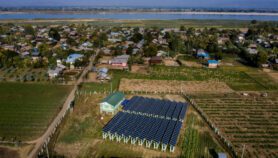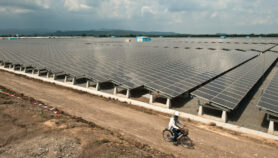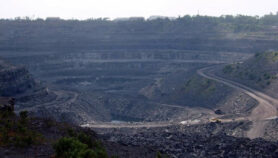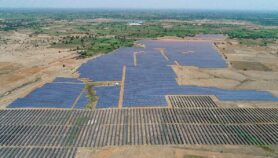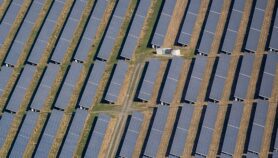By: Daniela López
Send to a friend
The details you provide on this page will not be used to send unsolicited email, and will not be sold to a 3rd party. See privacy policy.
[MEXICO CITY] By 2040, the use of air conditioning in the developing world will spur a 64 per cent increase in home energy consumption, generating 23.1 million tonnes of carbon dioxide.
According to a study published in the Proceedings of the National Academy of Sciences (27 March), rising temperatures and an increase in earnings will lead to greater air conditioning use in developing countries with warm climates.
“Households around the world are becoming richer. This is clearly a good thing. But when people buy more air conditioning units, it is important that the effects of this consumption on energy networks and the environment are not forgotten,” Lucas Davis, associate professor at the Haas School of Business at the University of California and co-author of the study, explains to SciDev.Net.
The study reports that air conditioning use is due to grow exponentially in developing countries such as China, India, Indonesia and Thailand in Asia and Brazil and Mexico in Latin America.
Davis and colleagues based their research on data from Mexico, which has highly varied climate as well as household income levels.
“We looked at how air conditioning ownership varies between homes in different parts of Mexico and between different income levels,” Davis explains. “The results were surprising. No one in the colder regions of the country had air conditioning units, but in warm areas air conditioning use is closely related to income.”
Davis predicts that by 2040, virtually all Mexican homes will have air conditioning despite seeing just a two per cent increase in household income.
According to the study, the same will happen in developing countries with a varied climate. A minimal increase in income will lead to households using artificial climate control.
But the authors believe that certain measures should be taken to reduce air conditioning use. Firstly, they suggest that people living in areas with extreme temperatures migrate to more temperate zones. Secondly, advances should be made to create more efficient cooling technology.
David Franco, a researcher at the Aragon Technology Centre, National Autonomous University of Mexico who works on experimental, ecological air conditioning systems, tells SciDev.Net that “when people’s income increases, they tend to purchase products that increase their comfort level, particularly climate control systems, which result in greater energy consumption”.
“Mexico also has its own particular situation especially at the northern border, where cheap but inefficient junk air conditioning units are brought in from the United States. You can find units that are over a decade old and still operate using fluorocarbons,” Franco adds.
>Link to the full study in Proceedings of the National Academy of Sciences
This article was originally written by SciDev.Net’s Latin America desk in Spanish and translated for the South-East Asia & Pacific desk.
References
PNAS doi: 10.1073/pnas.1423558112 (2015)



